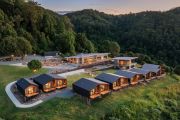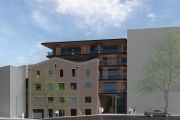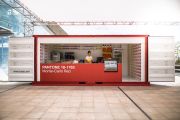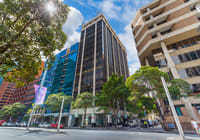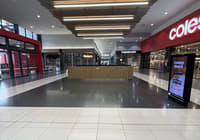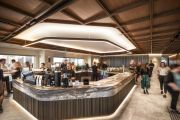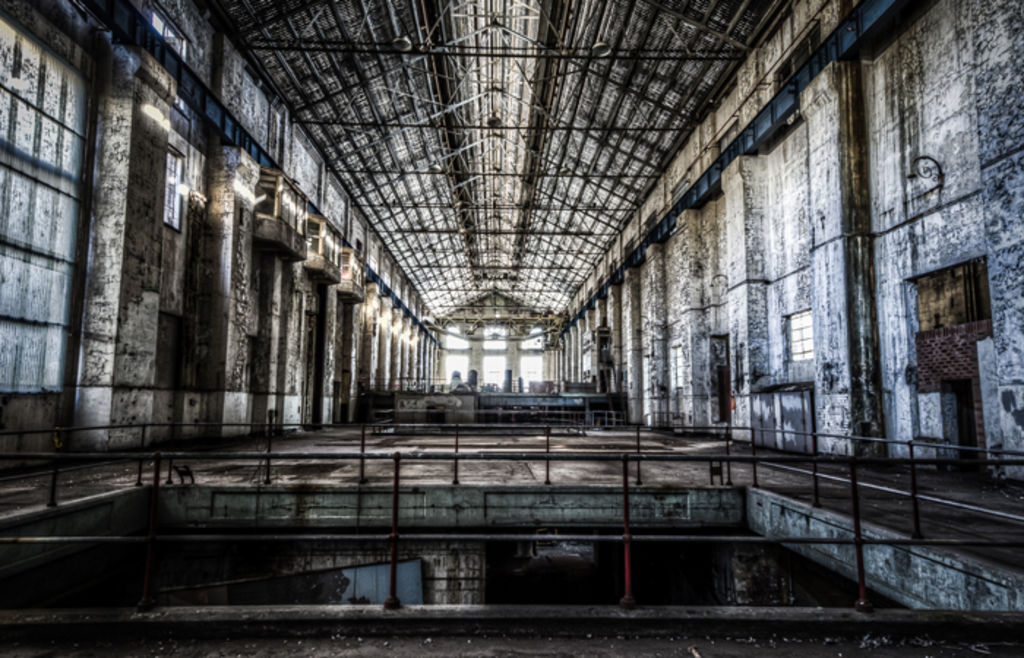
The photographer who turns Australia's abandoned buildings into art
Driving around in his work as a service technician, Brett Patman became captivated by the sight of so many abandoned buildings around Sydney and Melbourne.
Once, they played a huge role in people’s lives as factories, power stations, hospitals, abattoirs, brickworks … every kind of working and living environment.
But now they’ve been deserted, left to be reclaimed by nature or waiting patiently for a fresh lease of life, and yet somehow quite beautiful in their desolation.
 The turbine hall at White Bay Power Station, Sydney. Photo: Brett Patman
The turbine hall at White Bay Power Station, Sydney. Photo: Brett Patman
It started innocuously: Patman slipped through a hole in the wire at one boarded-up factory to look inside and take photos.
And now, five years on, he’s become obsessed by these forsaken buildings, entering them wherever there’s a door left open, a window with smashed glass or a gap in fences and, when there’s not, asking the owners for permission to enter so he can record their interiors.
 The boiler house control room, White Bay Power Station, Sydney. Photo: Brett Patman
The boiler house control room, White Bay Power Station, Sydney. Photo: Brett Patman
“There’s an inherent beauty in those places and I try to capture not just how they looked, but how they felt when they were filled with people,” says Patman, now 35, and working as an assistant hydrologist in his day job.
“Every location has a story of its past, its present state, my experience in visiting it and, in some cases, a plan for its future. I’d look in them and say, ‘Wow! If only people could see this stuff!’
“So I want to share these stories of our lost collective, to show what lies on the other side of those boarded-up windows and fences.”
 The entertainment room at Callan Park Hospital, Sydney. Photo: Brett Patman
The entertainment room at Callan Park Hospital, Sydney. Photo: Brett Patman
Patman, who’s recently moved back to Sydney after a spell in Melbourne, now plans an exhibition of his photography of the beautiful decay of that lost collective.
Many of those buildings, like old warehouses, are waiting to be developed into apartments, says Graham Quint, director of advocacy at The National Trust of Australia (NSW).
‘There’s an inherent beauty in those places and I try to capture not just how they looked, but how they felt when they were filled with people.’
Others, like Sydney’s White Bay Power Station, are the focus of more ambitious projects, like the NSW government’s plans for a knowledge and technology hub, and in the meantime are being used as sites for TV and film projects, such as The Great Gatsby.
“From our point of view, we don’t see it as urban decay; we see it as a gradual process of renewal,” Mr Quint says. “There are a lot of upmarket apartments now being created out of older buildings but I think the challenge is to be bolder with them rather than just apartments all the time.”
 Light in the stairs at the Box Hill Brickworks, Melbourne. Photo: Brett Patman
Light in the stairs at the Box Hill Brickworks, Melbourne. Photo: Brett Patman
Unfortunately no register of abandoned buildings exists in Australia, says a spokesperson from the Office of Environment and Heritage, but some receive heritage listings either at council, state or national level.
But Patman is bringing them more and more to people’s attention. He’s found increasingly that owners of dilapidated buildings now contact him and ask if he’d like to enter their premises and photograph what he finds.
 Brett Patman at Wangi Power Station, Wangi Wangi, NSW. “I want to share these stories of our lost collective.” Photo: Brett Patman
Brett Patman at Wangi Power Station, Wangi Wangi, NSW. “I want to share these stories of our lost collective.” Photo: Brett Patman
Even more rewarding, people who used to work in those buildings go on his Facebook page and start having discussions about what they were once like.
“I once did some photographs of an old abattoir in a country town,” says Patman, the father of a three-year-old daughter. “It had been such an important part of the town’s life and nearly everyone had worked there, or known someone who’d worked there, at various times.
“So people started a discussion about what it was like, who’d been there and who their friends had been. It really took off and the photos started to go viral. It was incredible.
 A clinic at Callan Park Hospital, Sydney. Photo: Brett Patman
A clinic at Callan Park Hospital, Sydney. Photo: Brett Patman
“Now there’s a really strong community engagement with what I post. People come out and say, ‘I used to work in that room!’ or ‘That used to be my office!’ or ‘I worked with that guy!’
“People have got back in touch with each other after 30 years.
“Someone from one of the factories started another Facebook page and got 300 followers in one day, and now they’re talking about organising a reunion. That’s started to become a real fascination of my photography now, to see the happiness it brings to people.”
 Nature always finds a way: Wangi Power Station, Wangi Wangi, NSW. Photo: Brett Patman
Nature always finds a way: Wangi Power Station, Wangi Wangi, NSW. Photo: Brett Patman
The places Patman’s photographed include Sydney’s White Bay Power Station, Callan Park Hospital and Balmain Leagues Club, Melbourne’s Box Hill Brickworks and O-I Glass, Geelong’s Geelong B Power Station and Wangi Power Station at Wangi Wangi.
Urban Taskforce CEO Chris Johnson warns there is a danger of having so many old, disused sites around. “Because so many of these buildings are left to decay, they can create decay around them,” he says. “You look at something like the Tigers’ club and it’s pretty terrible.
“I have a feeling that some councils can be a bit too purist and precious in trying to keep sites as they are at a time when the market has moved, and everyone would benefit from having them redeveloped into a new economy, with apartments, cafes, shops and new workplaces.”
 The White Bay Power Station entertainment hall, Sydney. Photo: Brett Patman
The White Bay Power Station entertainment hall, Sydney. Photo: Brett Patman
As Patman has explored these sites, occasionally he’s had challenges: people squatting in buildings who didn’t appreciate his presence, or once a caretaker who ranted about how he shouldn’t be there – and then ended by telling him how much he admired his photographs.
He’s also been contacted, once at 2am, by people telling him how they can see ghosts in his pictures.
“I guess my photographs are quite sad but it is sad to see these beautiful buildings with glass smashed and broken equipment and see them falling apart in neglect,” says Patman, who’s at pains to distance himself from the ex-urban exploration culture whose members usually steal into such buildings without anyone knowing, never ask permission and have their own rules and regulations about how to behave.
 The control desk at White Bay Power Station, Sydney. Photo: Brett Patman
The control desk at White Bay Power Station, Sydney. Photo: Brett Patman
“The images really stir up the emotions. Sometimes the buildings have been bought by overseas investors who do nothing with them for a long time, and it’s kind of demolition by neglect.
“Now I look more and more for buildings that have been abandoned, research them and read the news about what’s happening.
“Of course, some industries in Australia are in decline but this is kind of an advocacy for buildings’ restoration, to give them new life and as much dignity as they once had.”
- See more of Brett Patman’s work at www.facebook.com/lostc0llective and www.lostcollective.com
